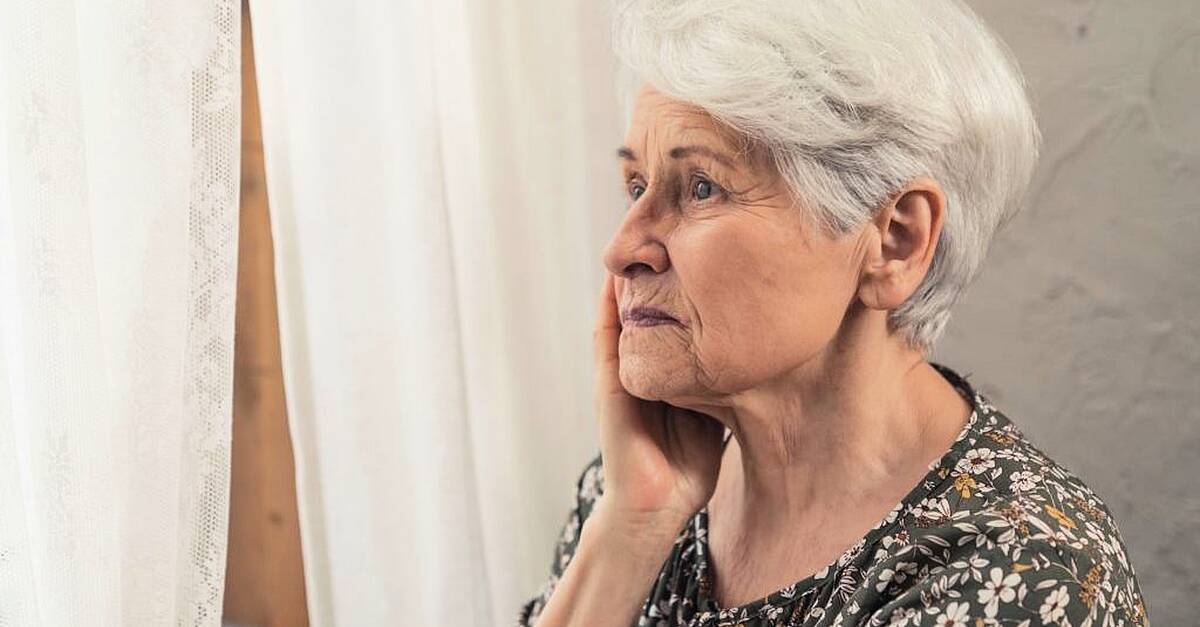Depression can hit at any age, and you’re just as likely to get it in your later years as you are when you’re younger.
In fact, the Mental Health Foundation (MHF) says depression is the most common mental health condition in later life, with around one in five experiencing it. Alexa Knight, MHF’s director of England, points out that more than half of all cases of depression in older adults are newly arising (late onset), meaning the people suffering from it have never experienced depression before.
“Depression doesn’t discriminate by age,” she says. “While its core symptoms remain similar, older adults often face unique challenges like physical health problems, loneliness, bereavement, and retirement, which can trigger depression.”
And, in the approach to World Suicide Prevention Day (September 10), it’s important to highlight the link between depression and suicide – the Faculty of Old Age Psychiatry of the Royal College of Psychiatrists says that among older people who died by suicide, 71-95 per cent had a major psychiatric disorder, with depression being the most common, stressing: “Depressive symptoms are the strongest predictor of suicide in older people.”
Indeed, new research on depression by Bupa found 79 per cent of people aged 55 years old and above who are suffering from depression say the condition makes them feel like nothing will get better, with 81 per cent saying depression can be invisible, and 70 per cent stressing they don’t think depression is understood.
And what doesn’t help older people with depression is that the condition can be harder to spot in older age groups, say the experts.
Michelle Hinchley, a Bupa specialist mental health nurse, explains: “Depression can affect people of all ages, but in older adults the symptoms may be less obvious.
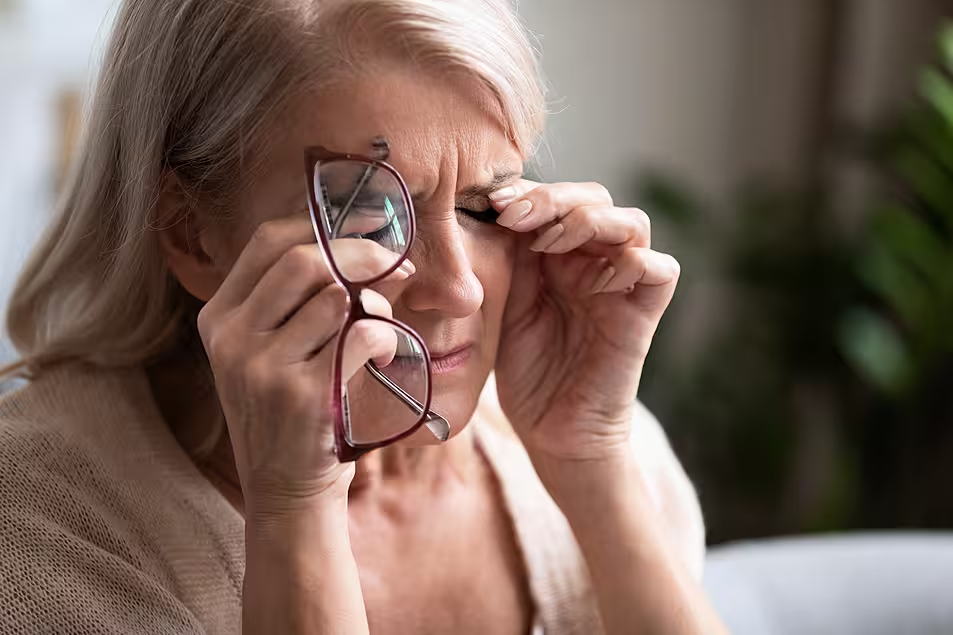 Fatigue can be a common sign. Photo: Alamy/PA.
Fatigue can be a common sign. Photo: Alamy/PA.
“While typical signs include persistent low mood and loss of interest in activities, older people may be more likely to have physical symptoms such as fatigue, sleep disturbances and a loss of appetite.”
She says depression in older adults can also occur at the same time as other medical conditions such as diabetes, cancer and heart disease, and points out: “It can make those conditions harder to manage, and they can also make depression feel worse.”
Of course, depression is more than just feeling unhappy for a short time – the NHS stresses that when you’re depressed you feel persistently sad for weeks or months, and it’s a genuine health condition.
Indeed, 74 per cent of the over 55s questioned by Bupa said it’s not just ‘feeling sad’, and 81 per cent said it’s not something you can simply snap out of.
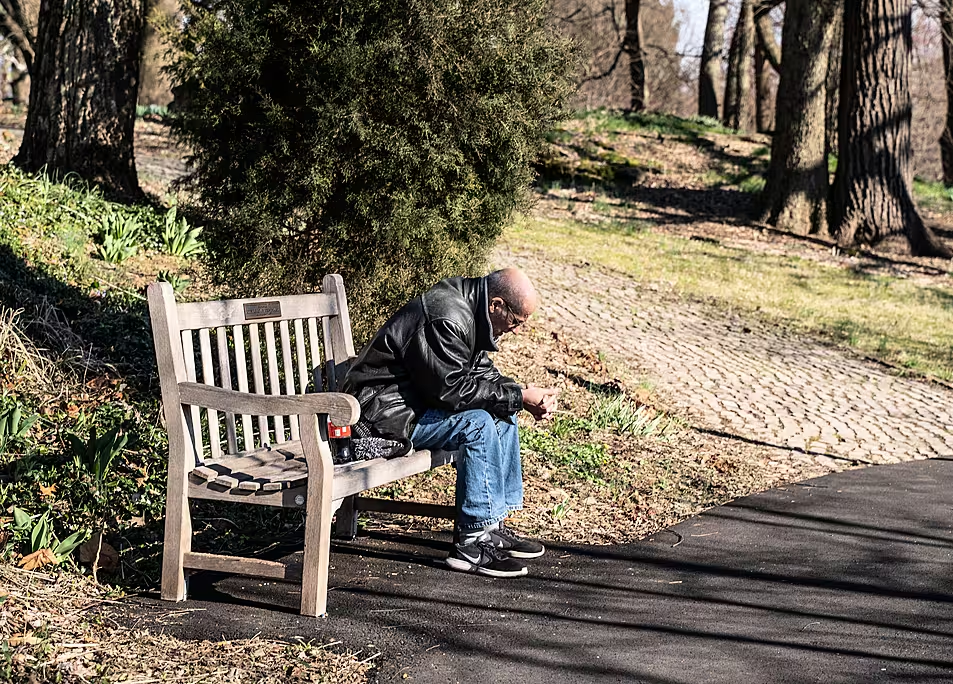 Depression is more than just feeling sad. Photo: Alamy/PA.
Depression is more than just feeling sad. Photo: Alamy/PA.
And although depression can be unrecognised or trivialised in any age group, this can be particularly relevant for older people.
Knight explains that depression in older age groups often goes undiagnosed or untreated, with data from 2020/2021 showing just 5% of NHS talking therapy referrals were for people over age 65, despite older adults being just as likely to experience depression and anxiety as younger people.
Hinchley agrees that in the over-55s, depression is often missed and not always treated, and points out: “Older adults may be less likely to seek help due to stigma or difficulty recognising symptoms, which can lead to delays in diagnosis and support.”
Part of the lack of recognition of depression in older adults can be linked to it sometimes being brushed off as simply a reaction to a life stage, such as struggling with being physically less capable because of ageing, having other illnesses, coping with bereavement or having a lack of focus once retired.
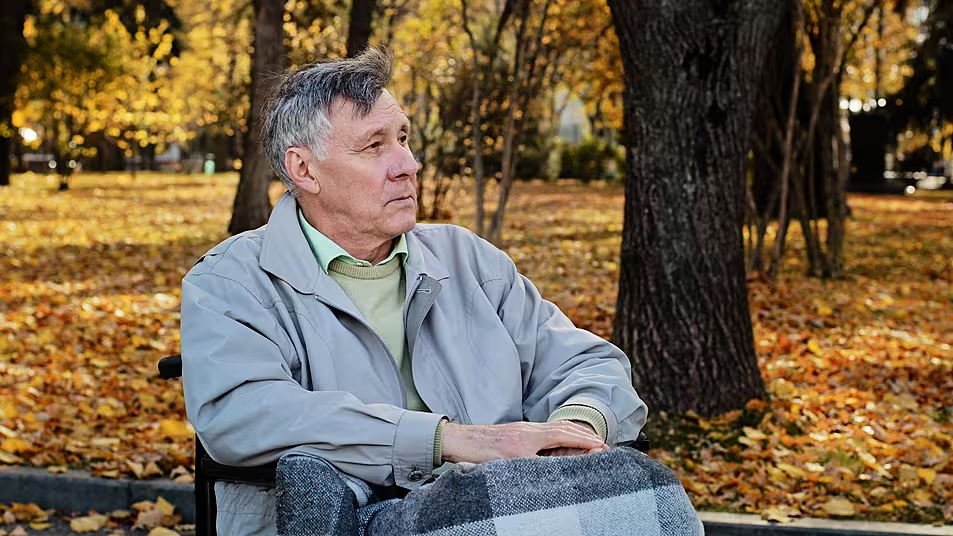 Many older adults brush depression symptoms off as something else. Photo: Alamy/PA.
Many older adults brush depression symptoms off as something else. Photo: Alamy/PA.
“Older adults can experience depression for the first time in later life,” stresses Hinchley. “It’s often linked to big life changes like losing a loved one, retiring or health problems, but sometimes there’s no clear reason.
“It can be hard to tell the difference between depression and feelings like grief, boredom or just feeling low. But depression tends to be more persistent and intense, lasting for weeks or months and affecting daily life.”
She explains that grief, for example, often comes in waves, while boredom might cause restlessness but doesn’t usually bring the same deep emotional pain or physical symptoms as depression.
“Just because someone hasn’t had depression before doesn’t mean they won’t in older age,” she stresses. “Spotting it early and offering support can really help with recovery and improve their quality of life.”
But how can friends and loved ones spot someone is depressed rather than just feeling sad or low?
Hinchley says if an older person is less socially active or lives alone it can make depression even harder to spot, and that’s why staying connected to them and making sure they check in regularly with friends and family is so important.
“Relationships play a vital role in mental wellbeing, and encouraging open conversations about mental health can make a real difference,” she says.
“It might take a few tries to get someone talking, and they may feel more comfortable opening up to a different relative or friend, but what matters is creating space for conversation.”
She says gentle, open-ended questions can help start the conversation, and advises: “When you talk, focus on how they’re feeling, rather than trying to fix things – listening without judgement shows you care, and for someone who’s struggling, that can be a huge relief.”
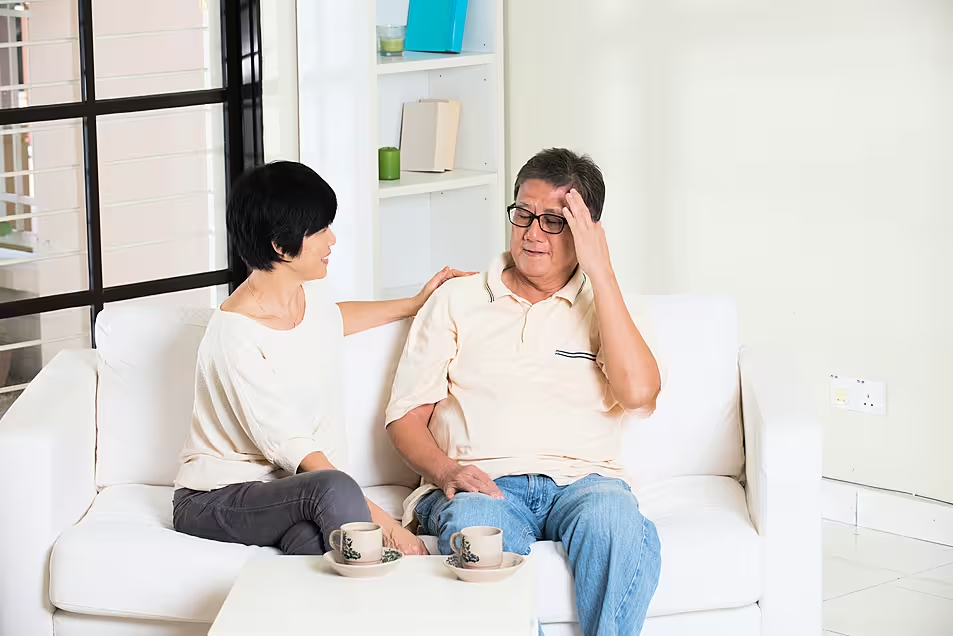 As a loved one, it’s important to try and open up a conversation. Photo: Alamy/PA.
As a loved one, it’s important to try and open up a conversation. Photo: Alamy/PA.
If a person with depression is open to it, encourage them to speak to a health professional, she suggests, as getting help early can really improve how they feel, And she stresses there are lots of support options available, including helplines, talking therapies and crisis services.
And Knight adds: “Understanding depression isn’t just about empathy, it’s a vital part of suicide prevention. It’s important that people know how to recognise the signs in themselves and others, and where to get support.
“It’s important to have open conversations about depression to help tackle stigma and help people to feel comfortable asking for help.”

